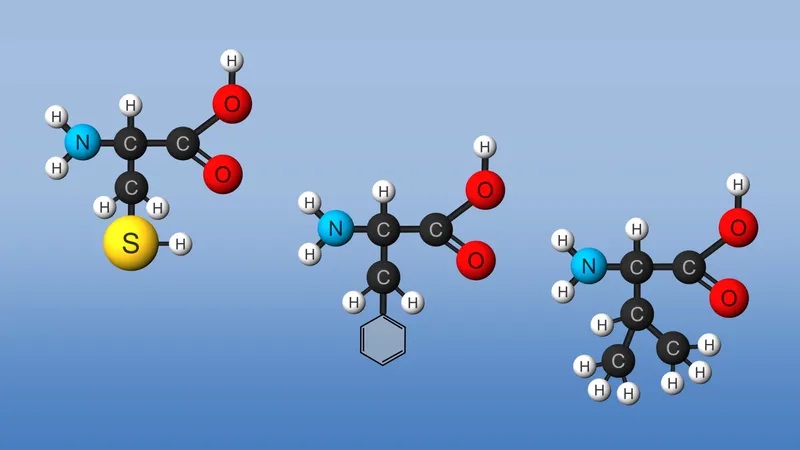Amino Acids: The Building Blocks Of Protein
Amino acids are organic compounds that are the basic building blocks of proteins. There are twenty standard amino acids combined in different sequences to form the proteins essential for the human body and health.
The Role Of Amino Acids
Amino acids play a vital role in many biological processes. It includes functions such as:
- Building Blocks Of Proteins: Chains of amino acids link together to form proteins for structural components, hormones, enzymes, etc.
- Neurotransmitters: Some amino acids like glutamate, glycine, and gamma-aminobutyric acid (GABA) act as chemical messengers, transmitting nerve signals.
- Energy Production: Amino acids help convert blood sugar into energy and assist muscle growth and regeneration after physical activity.
Essential Vs Nonessential Amino Acids
There are two categories of amino acids:
Essential Amino Acids
The human body cannot produce the following nine essential amino acids, so they must come from food sources:
- Histidine
- Isoleucine
- Leucine
- Lysine
- Methionine
- Phenylalanine
- Threonine
- Tryptophan
- Valine
Nonessential Amino Acids
The body can produce the remaining 11 nonessential amino acids. They are just as critical but do not have to come from a diet.
Benefits Of Key Amino Acids
Here are some of the top amino acids and their notable health benefits:
- Lysine: Supports calcium absorption for bone health, and helps form collagen to maintain skin elasticity. Good sources are lean meats, fish, beans, and dairy.
- Leucine: Helps regulate blood sugar levels, and stimulates muscle protein synthesis and growth. Find it in soybeans, beef, chicken, nuts and seeds.
- Glutamine: A major fuel source for intestinal cells and the immune system, helps digestive health. It is abundant in most high-protein foods like meat, seafood, and dairy.
- Tryptophan: Precursor to serotonin hormone associated with happy moods and sleep regulation. Contained turkey, chicken, milk, oats, and bananas.
- Glycine: Key neurotransmitter chemical messenger in the brain. Common in high-protein foods like pork, beef, fish, spinach, and kale.
- Arginine: Helps remove waste products from the body and maintain immune function. Watermelon, nuts, and seeds have high amounts.
Ensure Adequate Amino Acid Intake
A balanced diet focused on high-quality protein sources provides the essential and non-essential amino acids needed for good health. Those at risk for deficiency include people on restricted diets, vegans, and vegetarians, as well as the elderly or ill relying on nutritional support.
Consulting with a nutritionist can help tailor optimal amino acid intake. Certain supplements, like branched-chain amino acids (BCAAs), are popular with athletes and bodybuilders for optimal muscle performance, although they are not necessary for the general population, which eats a wide variety of healthy proteins.
Getting a proper mix of both essential and nonessential amino acids ensures all the vital processes in the body have the necessary building blocks and precursors. Adequate protein intake also helps curb overeating by inducing satiety signals and providing lasting energy.




